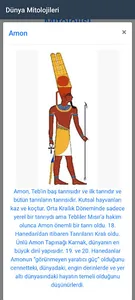☆ Turkish Mythology
☆ Mesepotamian Mythology
☆ Greek Mythology
☆ Mayan Mythology
☆ Aztec Mythology
☆ Inca Mythology
☆ Indian Mythology
☆ Japanese Mythology
☆ Egyptian Mythology
☆ Chinese Mythology
What is Mythology?
Mythology means the science of legends. The word mythology was used both for the book in which fairy tales and legends were collected and for the work done by the compilers who were described as the author of mythos in the late antiquity.
There were three words that corresponded to the concept of 'word' in the ancient Greek language. First, 'mythos' is a spoken or heard word, meaning legend, story. But mythos is not reliable because it can be decorated with many lies and exaggerations when people describe what they see or hear.
The second is Epos, a word spoken and read according to a certain order and measure. Over time, it came to mean poetry, epic and melody and now took its place in western languages as epic or epope. Finally, logos are defined as "speaking the truth with human words".
Natural scholars, especially the historian Heraclitus, made the word Logos. This word is so compatible with science and research that it is still a supplement like logos-logia, which is added to the end of research and science branches today. It has passed to our language as '-logy'. For example; Anthropology, Sociology.
☆ Mesepotamian Mythology
☆ Greek Mythology
☆ Mayan Mythology
☆ Aztec Mythology
☆ Inca Mythology
☆ Indian Mythology
☆ Japanese Mythology
☆ Egyptian Mythology
☆ Chinese Mythology
What is Mythology?
Mythology means the science of legends. The word mythology was used both for the book in which fairy tales and legends were collected and for the work done by the compilers who were described as the author of mythos in the late antiquity.
There were three words that corresponded to the concept of 'word' in the ancient Greek language. First, 'mythos' is a spoken or heard word, meaning legend, story. But mythos is not reliable because it can be decorated with many lies and exaggerations when people describe what they see or hear.
The second is Epos, a word spoken and read according to a certain order and measure. Over time, it came to mean poetry, epic and melody and now took its place in western languages as epic or epope. Finally, logos are defined as "speaking the truth with human words".
Natural scholars, especially the historian Heraclitus, made the word Logos. This word is so compatible with science and research that it is still a supplement like logos-logia, which is added to the end of research and science branches today. It has passed to our language as '-logy'. For example; Anthropology, Sociology.
Show More














